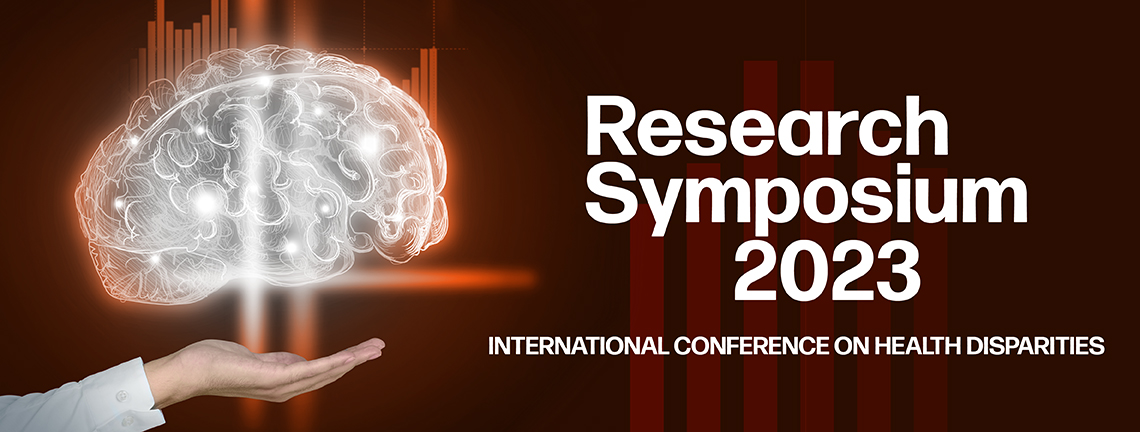
Posters
Presentation Type
Poster
Discipline Track
Community/Public Health
Abstract Type
Research/Clinical
Abstract
Background: This study's purpose was to research the link between alcohol use and negative mental health symptoms in the Rio Grande Valley. As current literature suggests, the Rio Grande Valley has above average alcohol consumption and negative mental health symptoms, especially among young adults. Recent studies indicate there may be an association between the amount of alcohol one consumes and the likelihood of experiencing negative mental health symptoms such as depression and anxiety and vice versa. The RGV’s population and culture provides a unique opportunity to study this correlation and better advise the community and health care professionals about potential consequences of alcohol abuse and poor mental health.
Methodology: This study surveyed UTRGV students ages 18-24. To maintain the study's anonymity and provide incentive for participation, two surveys were produced. The primary survey remained completely anonymous. The optional second survey collected the participant's name, email, and phone number for a chance to win one of three $25 gift cards at the end of the study. The participants' personal identifiers in the second survey cannot be linked to any of the first survey's responses, thus maintaining the anonymity of the main study. The survey was distributed via student listservs, social media pages, flyer postings, and in-person solicitation. The survey questions stemmed from four validated, psychometric scales including the 9-item Patient Health Questionnaire, 7-item Generalized Anxiety Questionnaire, Alcohol Use Disorders Identification Test (AUDIT), and the Brief Young Adult Alcohol Consequences Questionnaire. Descriptive outcomes, frequencies and percentages, T-tests, and Chi-square tests were utilized for sufficient data analysis and visualization.
Results: 135 student responses were reported. According to the psychometric scales, a significant number of students indicated moderate and severe levels of depression and anxiety. Furthermore, 71% of students reported partaking in hazardous drinking, with 32% engaging in binge drinking. A strong relationship (p < 0.001) between negative consequences and the amount of drinking was found. Despite these findings, no significant trends were observed between hazardous drinking and levels of anxiety (p = 0.51) or depression (p = 0.37) in students.
Conclusion: Our results strengthen previous understanding that young adults of the Rio Grande Valley have significant levels of alcohol consumption and negative mental health symptoms. Together, these concerns might pose serious challenges to the quality of life for RGV residents. Educating our community and its healthcare workers on the prevalence of hazardous drinking and negative health symptoms is vital for long-term public health management.
Recommended Citation
Al-Qudah, Yahia, "Association Between Alcohol Use and Negative Mental Health Symptoms in the Rio Grande Valley" (2024). Research Symposium. 90.
https://scholarworks.utrgv.edu/somrs/2023/posters/90
Included in
Association Between Alcohol Use and Negative Mental Health Symptoms in the Rio Grande Valley
Background: This study's purpose was to research the link between alcohol use and negative mental health symptoms in the Rio Grande Valley. As current literature suggests, the Rio Grande Valley has above average alcohol consumption and negative mental health symptoms, especially among young adults. Recent studies indicate there may be an association between the amount of alcohol one consumes and the likelihood of experiencing negative mental health symptoms such as depression and anxiety and vice versa. The RGV’s population and culture provides a unique opportunity to study this correlation and better advise the community and health care professionals about potential consequences of alcohol abuse and poor mental health.
Methodology: This study surveyed UTRGV students ages 18-24. To maintain the study's anonymity and provide incentive for participation, two surveys were produced. The primary survey remained completely anonymous. The optional second survey collected the participant's name, email, and phone number for a chance to win one of three $25 gift cards at the end of the study. The participants' personal identifiers in the second survey cannot be linked to any of the first survey's responses, thus maintaining the anonymity of the main study. The survey was distributed via student listservs, social media pages, flyer postings, and in-person solicitation. The survey questions stemmed from four validated, psychometric scales including the 9-item Patient Health Questionnaire, 7-item Generalized Anxiety Questionnaire, Alcohol Use Disorders Identification Test (AUDIT), and the Brief Young Adult Alcohol Consequences Questionnaire. Descriptive outcomes, frequencies and percentages, T-tests, and Chi-square tests were utilized for sufficient data analysis and visualization.
Results: 135 student responses were reported. According to the psychometric scales, a significant number of students indicated moderate and severe levels of depression and anxiety. Furthermore, 71% of students reported partaking in hazardous drinking, with 32% engaging in binge drinking. A strong relationship (p < 0.001) between negative consequences and the amount of drinking was found. Despite these findings, no significant trends were observed between hazardous drinking and levels of anxiety (p = 0.51) or depression (p = 0.37) in students.
Conclusion: Our results strengthen previous understanding that young adults of the Rio Grande Valley have significant levels of alcohol consumption and negative mental health symptoms. Together, these concerns might pose serious challenges to the quality of life for RGV residents. Educating our community and its healthcare workers on the prevalence of hazardous drinking and negative health symptoms is vital for long-term public health management.

